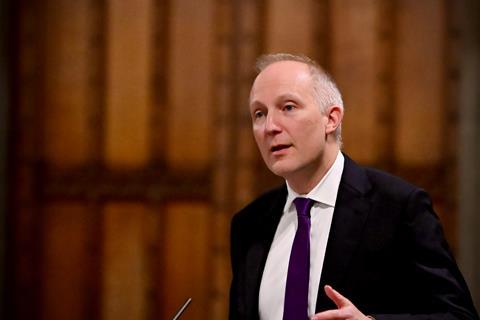The Bar Council has urged the government to remove the cap on court sitting days, restore legal aid for early legal advice and match-fund 100 criminal pupillages a year to help the justice system.
In submissions to the spending review, the Bar Council set out its five priority areas it said the Treasury should consider to ensure improvements to access to justice and tackle the court backlogs.
The five proposals include ‘restoring adequate resources to the justice system to promote growth and protect the public’ with funding in line with demand, and removal of the cap on sitting days in the Crown court as well as sufficient sitting days in all jurisdictions, ‘especially family’.

The bar also asks that the government match-fund the cost of 100 additional criminal pupillages a year ‘to provide for the long-term sustainability of the criminal bar’ and an ‘immediate uplift’ of 15% to criminal prosecution and defence fees.
Speaking of the court infrastructure, in its proposals the Bar Council ‘endorsed the need for capital spend of £1bn’ – the figure was first identified by HM Courts and Tribunals Service.
Widening access to legal support to tackle violence against women and girls also formed part of the five proposals. The Bar Council suggested the government remove means testing for legal aid for alleged victims and survivors of domestic abuse and increase fees for rape and serious sexual offence (RASSO) cases in the Crown court.
Read more
Increasing fees for RASSO cases would ‘equalise prosecution and defence fees to retain and recruit the specialist barristers needed’.
The recommendations also suggested widening legal aid eligibility, funding legal representation for families in inquests and restoring legal aid for early legal advice at a cost of around £137m.
Sam Townend KC, chair of the Bar Council, said: ‘We recognise the government is looking for cost savings from every department, but having suffered the consequences of a 22% cut under the last government, justice simply cannot afford to be cut any further.
‘In the context of overall government spending, the resources needed to fix the foundations of the justice system are very small.
‘The effects of insufficient resources are plain to see – record backlogs in all jurisdictions, a crumbling court estate and unacceptably long waiting times for cases to be heard. In the wake of the prisons crisis, it is essential that the government uses the opportunity of the Spending Review to rebuild confidence in the whole system.’
Chancellor Rachel Reeves is expected to present a budget at the end of next month.
This article is now closed for comment.



























2 Readers' comments